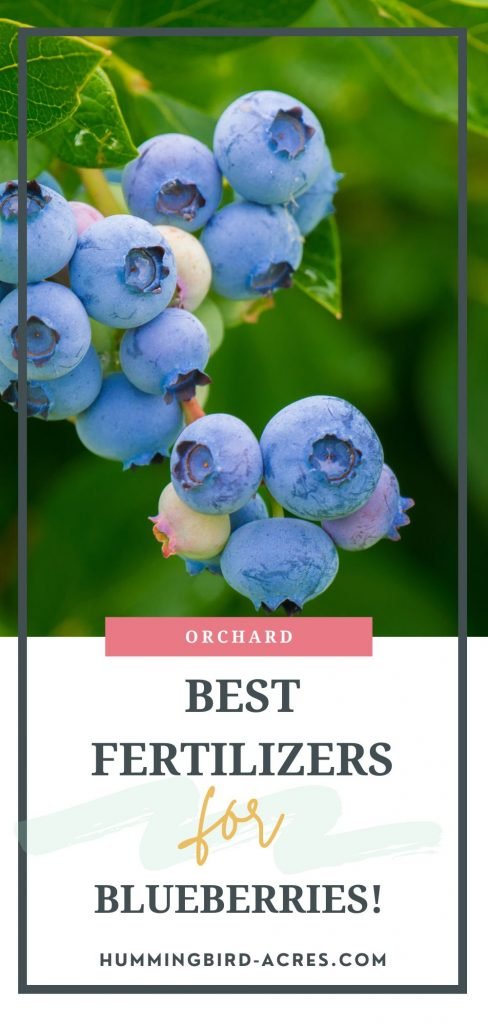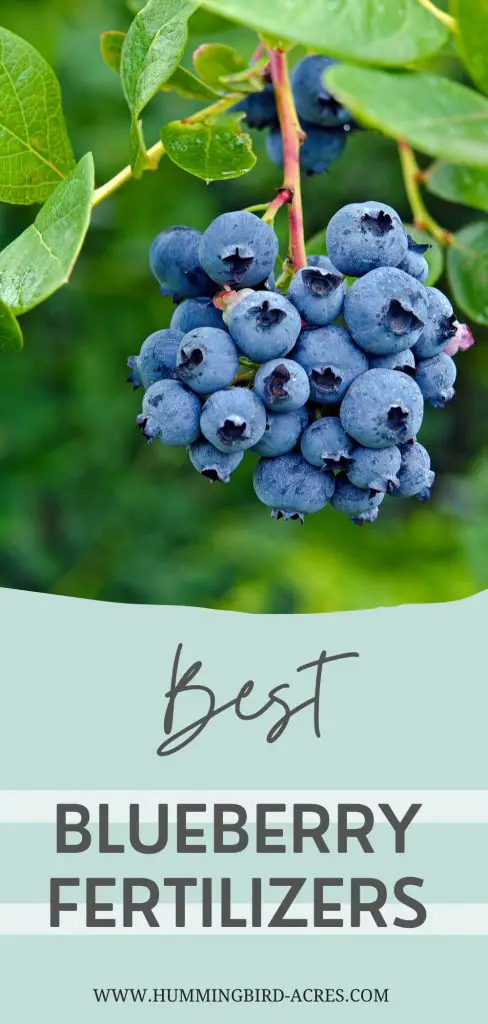Best Fertilizer for Blueberries for a BIGGER Blueberry Harvest
What is the Best Fertilizer for Blueberries?
When it comes to finding the perfect fertilizer for blueberries, you need to take care of two things.
Disclosure: Some of the links below are affiliate links, meaning, at no additional cost to you, I will earn a commission if you click through and make a purchase.
The ingredients and release time for your blueberry fertilizer can make or break it. These two features go hand in hand in ensuring good blueberry growth.
When you’re looking at the different types of fertilizers, look at the ingredients. Blueberries are acid-loving plants, they need fertilizers that lower the pH level of the soil. This is often found in the nitrogen of most fertilizers.
However, don’t use just any fertilizer that has nitrogen in it. Blueberries respond best to an ammonium form of nitrogen. That means the fertilizer should have cottonseed meal, urea, or ammonium sulfate in it.
These types of nitrogen components allow the berries to grow strong and healthy. If you use a nitrate form of nitrogen on your blueberries, they are not likely to thrive. Using this type of fertilizer over a long time can eventually stop growth altogether.
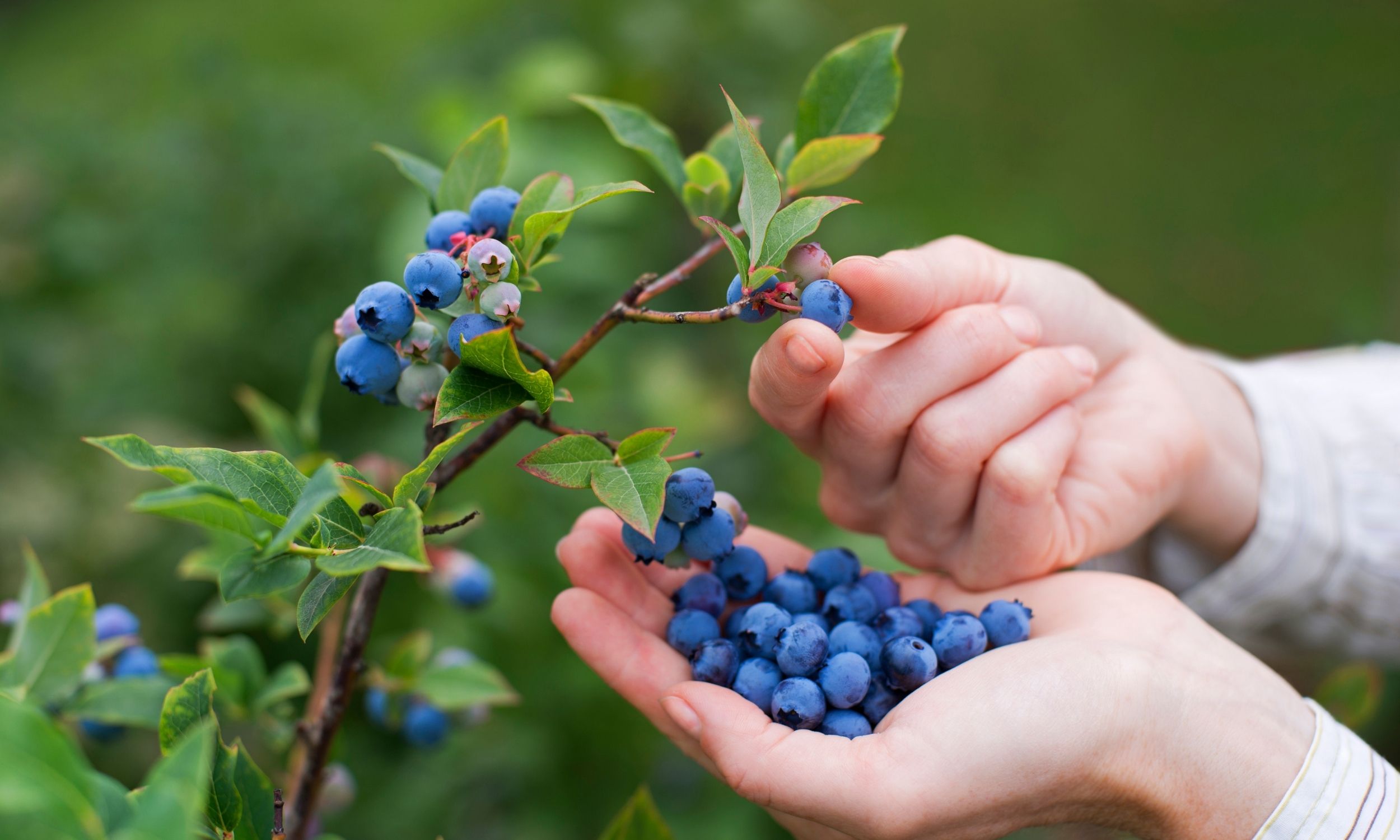
The second feature you should look for in the many types of blueberry fertilizers is the release. Every fertilizer has its own release period, but blueberries need a slow one.
Because blueberries need a high level of acidity in the soil, they can quickly leech it from the ground. This leaves their soil parched of the essential acidity. However, if there’s any runoff of water or soil to other plants, it’s too much acid for them, and they can die.
That’s why it’s important to fertilize your blueberry plants with a slow-release product. This can keep the acidity coming at a nice and slow pace. It also discourages any runoff or leaching, keeping both plants and blueberries satisfied.
Our Blueberry Bushes are in pots making them easy for us to move around. You can read about planting Blueberry Bushes in Pots HERE.
The 5 Best Fertilizer for Blueberries
Fruit plants in general, but especially blueberries, require special fertilizers to grow healthy. Finding the right fertilizer for your soil can be tricky, as you’re trying to lower the pH level. Here are the 5 best fertilizers for blueberries that you can try out.
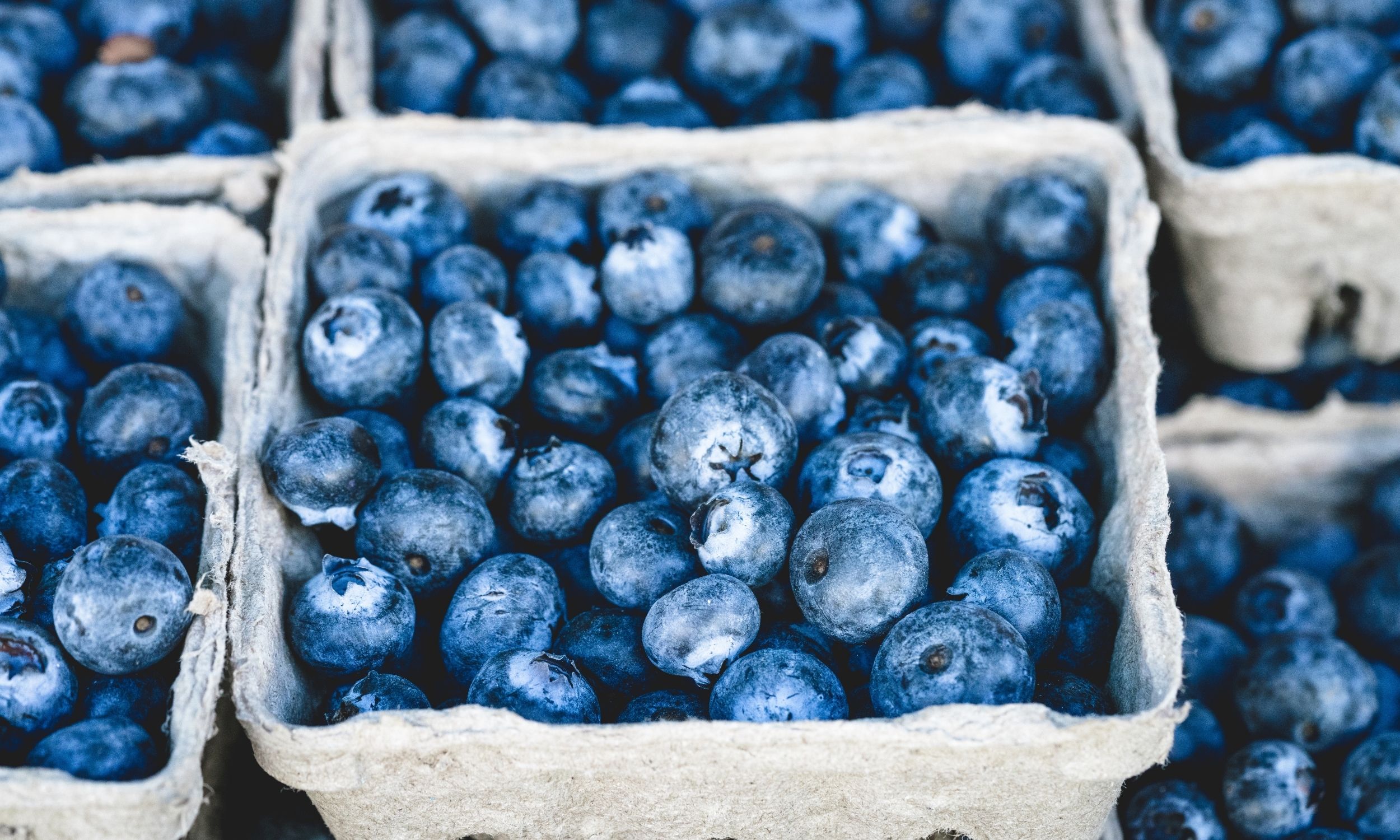
Espoma HT18 Holly Tone
The first fertilizer is the Espoma Holly-tone plant food. This fertilizer has lots of great qualities which make it very versatile in its uses. You definitely want to try this product on your blueberry bushes.
One of the best things about the Espoma Holly-tone plant food is that it enriches the soil. While other fertilizers promote a neutral soil, this product produces acidic soil. Acidic soil is the best for blueberry growth, so it’s a must to use a fertilizer that helps reach that goal.
This product also has different options for gardeners in terms of product amount. You can purchase various sizes from 16 pounds to 50 pounds. This allows you to save on repeatedly buying the product.
It’s still important to not use it too much and follow the directions on the package. The correct method of applying this fertilizer is to add a liberal layer to the topsoil. Once you’ve applied about two inches of the product, incorporate it into the soil by using a trowel. Lastly, give it a good watering to allow the fertilizer to seep into the base of the plant.
Jobe’s Organics 09727 Berry Granular Plant Food
Next is the Jobe’s Organics berry food. Like the previous product, this one can be used for a wide variety of plants. However, the best use for this product is definitely with berries.
Jobe’s Organics berry food helps gardeners grow larger and more berries in general. You can use it for any type of berry from blueberries to strawberries. This is beneficial because, again, it saves you money from buying new fertilizers.
Because this is an organic mixture, it contains no harmful chemicals or ingredients. You can use this around your pets and family within reason. You also don’t have to worry about it getting in contact with your own skin during the application.
Additionally, Jobe’s Organics berry food won’t burn your plants, even with direct application. You can add this fertilizer right on the plant’s base. You can also mix it into the soil before planting your blueberries there.
This product also has a very large variety of specific formulas for different plants. You can find fertilizers for fruit/citrus plants, roses/flowers, and vegetable gardens. You also have the option of choosing bag sizes from a single pound to 16 pounds.
When it comes to applying it, make sure to spread the fertilizer every four weeks or so. This plant is also great for seedlings, new plants, and established plants. You can use it for your blueberries from the very beginning of their life.
Winchester Gardens Select Organics Berry Granular Fertilizer
The Winchester Gardens Select Organics is another great option for any gardener. It’s perfect for all skill levels, as it’s a stand-alone fertilizer. If you’re growing blueberries, you don’t need to add any other substance to the soil for optimal growth.
The Winchester Gardens formula is one of the best. It contains healthy amounts of bone and feather meal, both of which are necessary for good growth. It also has a good nitrogen, phosphorous, and potassium ratio, which are the holy trinity of plants.
While this product can be applied by mixing it in with the soil before planting, the best way is to add it above ground. Once your blueberry roots are securely underground, add a scoop of this around the base. Because this is a sand-like product, it’s easy to water it down when you first apply it.
Aside from using this on your blueberries and others, you can also apply this to your indoor plants. You might have to use a lot less to enrich that soil because it’s in such a small quantity.
You should also ensure that you have good drainage for this product, whether you use it indoors or out.
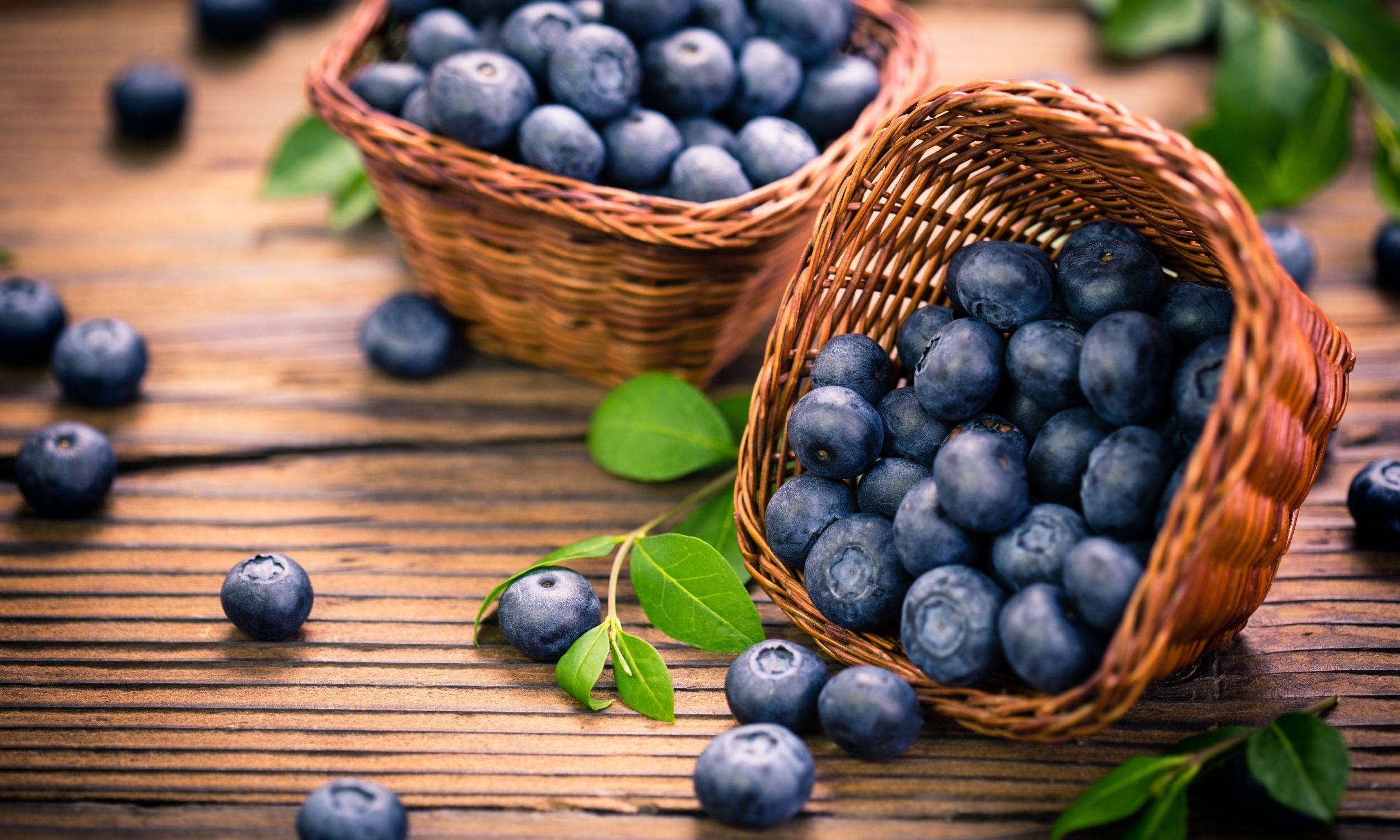
Down To Earth All Natural Fertilizers Acid Mix
This Down-To-Earth acid mix is designed specifically for blueberries. That tells you that it doesn’t get much more personalized for your berries than this. Using this fertilizer as directed on your berries is the best way to ensure good growth.
Taking a look at some of the features of this product, let’s start with composition. The Down-To-Earth fertilizer contains cottonseed meal, rock phosphate, and kelp meal. That sounds strange, but these ingredients come together to provide nutrients to berries.
One feature that other fertilizers don’t usually have is environmentally-friendly packaging. The box that this product comes in can be composted. That way, your blueberries can thrive without the box leaving a harmful impact.
The application method for this fertilizer is just like that of others. If your blueberry plant is not mature yet, mix in the fertilizer before planting. This is going to help your berries have a strong start.
On the other hand, if your blueberry plants are mature and need some extra help, you can place this around the base. This method allows for a slower release of the fertilizer, which is what mature plants need.
Dr. Earth 703P Organic 4 Azalea/Camellia/Rhododendron Acid Fertilizer
If you want something that you can apply and use for a long time, then this product is for you. The Dr. Earth Acid Lovers fertilizer offers users many things. One of those things is a very speedy release that gives fast results.
Dr. Earth fertilizer has an excellent formula. You can find a fish meal, alfalfa meal, and beneficial strains of mycorrhizae, to name a few. It’s also 100% organic, and that’s always a good trait for a fertilizer to have.
When you look into the ingredients, these help your plants and blueberries get strong. This fertilizer helps your plants become strong and provide more fruit than without. Additionally, Dr. Earth fertilizer also makes plants more resistant to drought damage.
A huge plus for this product is that its pet and child-friendly. This is especially important around plants like berries and flowers. Because kids and animals enjoy them, it’s essential to use stable fertilizer.
Another great feature for this Dr. Earth product is that it has a stable release time. You can plant your blueberries, apply this at the beginning of the season, and forget about it. One application lasts for several months, so it’s very potent and effective.
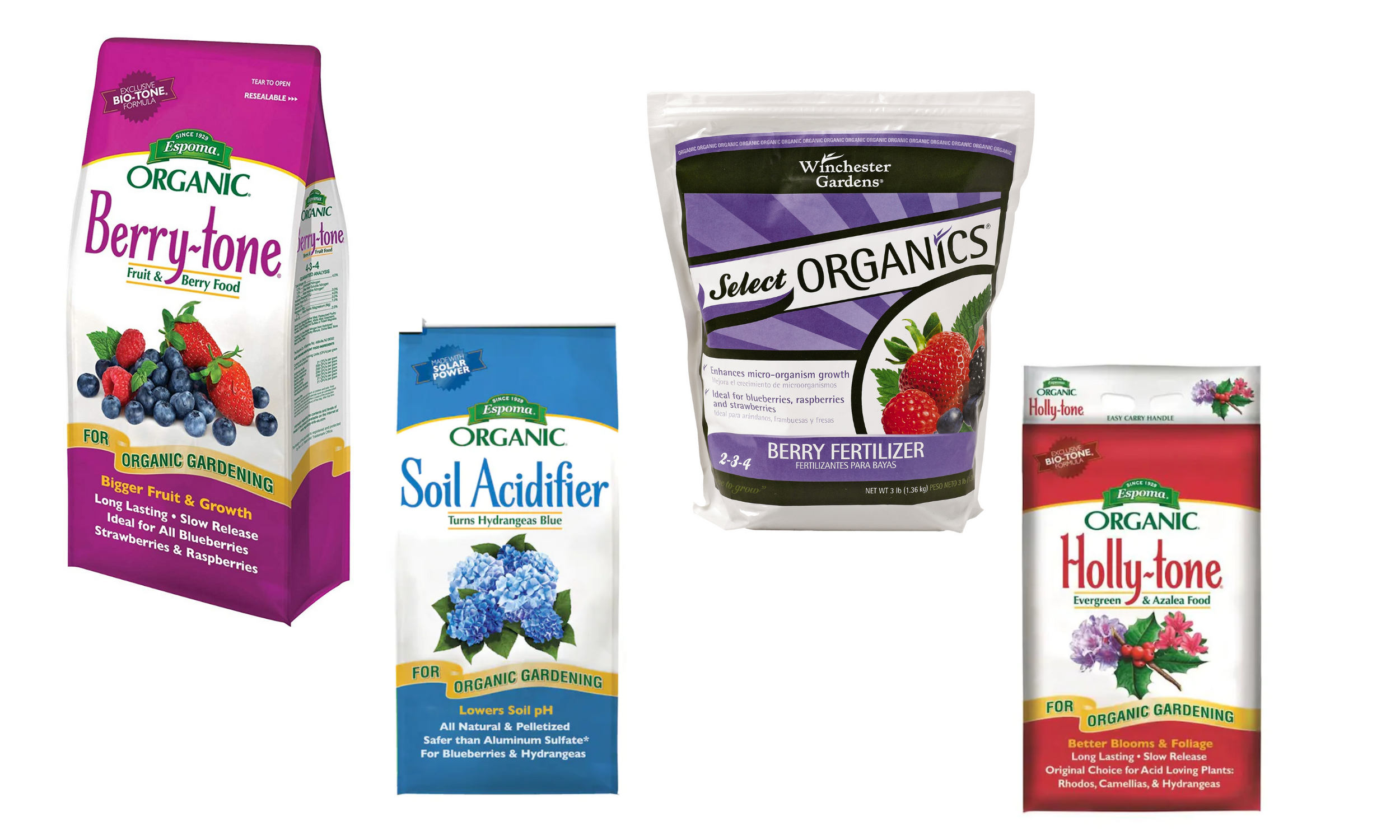

Don’t Let your Homestead Fail!
Get our FREE What Makes a Successful Homestead eBook!
When is the Best Time to Fertilize Blueberries?
You might think that all berries have the same needs in terms of how often they should be fertilized. But in fact, blueberries require a little more product than other berries do. However, just like any other berry, blueberries enjoy a routine application of nutrients.
There are a few key times that you should be fertilizing your blueberries. The most important time to apply the product to them is when the new growth begins in spring. This gives the plants a strong base to continue growing healthy roots during this season.
You can also apply fertilizer when you initially plant your blueberries. Even if it’s out of season, having good soil for your plants can help them build a strong stem and root system early on.
New plants also need extra help to get started, so be generous with your fertilizer until they start to grow.
After this initial growth, you should follow the manufacturer’s directions on fertilization. More often than not, the second fertilization is supposed to be applied after six weeks. Different brands vary from two weeks all the way to seven weeks depending on the potency and release.
The final fertilization time is right after you harvest the blueberries. This helps replenish the soil after a long season of growth. Usually, the stems and roots are tired from all of that hard work, so they need a little pick-me-up.
Applying fertilizer then helps prepare them for the next growing season. It also aids in getting them strong for the long winter in between.
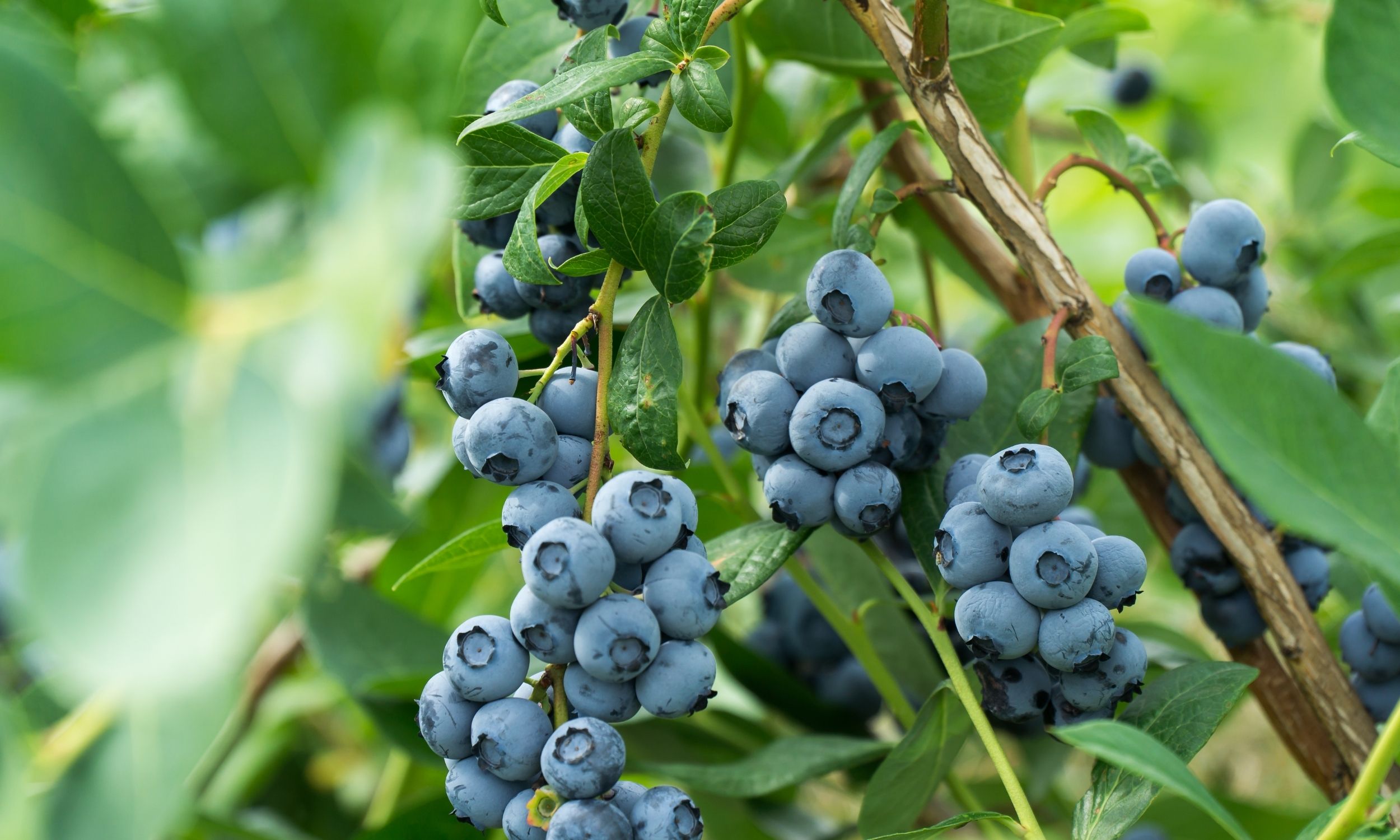
How to Fertilize Blueberries?
With any fruiting plant, the fertilization method is a little similar. You want to make the product available as much as possible to the roots of the plant. Avoiding the leaves and stem is always an important aspect of using fertilizers.
In order to get the fertilizer to the roots, you need a small rake. When your blueberry plants are ready for planting, start by raking a few inches into the soil. Make sure that it’s deep enough for the roots of the blueberry plant to fit in nicely.
Once you’ve made a hole, mix in the fertilizer with a little bit of the ground soil. This mixture creates the perfect home for your baby blueberry plant. Once it’s nicely incorporated, plant your blueberry base and water it down.
In this method, you’re adding the fertilizer directly into the soil. There’s no danger of getting the product on the stems or leaves, so this is recommended for young plants.
If you have a mature blueberry plant, the fertilization method is a bit different. You’re not going to dig out the plant completely, so it’s best to apply the product around the base of the bush. Start by raking a circle around the base, about two inches deep in the soil.
Once you’ve loosened the topsoil, add a layer of the fertilizer. Make sure that the fertilizer doesn’t touch the actual stem or leaves of the blueberry plant. Direct contact with the fertilizer can burn your plants.
Once you’ve added a nice layer of fertilizer, make sure to water it down. Giving a thorough watering session at this time is important, as it allows the fertilizer to go deep in the soil. Again, your goal is to get the fertilizer to the roots, and this method accomplishes that.
How often to Fertilize Blueberries?
Fertilizing your blueberries is something that you should keep track of. How your plants look after you fertilize them for a while shows you if you’re applying it too much or not enough. When you fertilize your blueberries, you need to be especially careful.
Although blueberries need acidic soil to stay healthy, too much nitrogen can kill any soil. For this reason, it’s recommended to fertilize your blueberries for the above-mentioned times.
Depending on your soil, your blueberries may not grow as well as you’d hoped. If they’re taking longer to grow, you can add one extra fertilization session. However, take care to follow the measurements as per the directions for the product.
It’s also important to note that blueberries are a naturally slow-growing fruit. It takes around three years for the plant to sustain fruit, so don’t try to rush it by adding extra fertilizer. Slow and steady wins the race when it comes to blueberries.
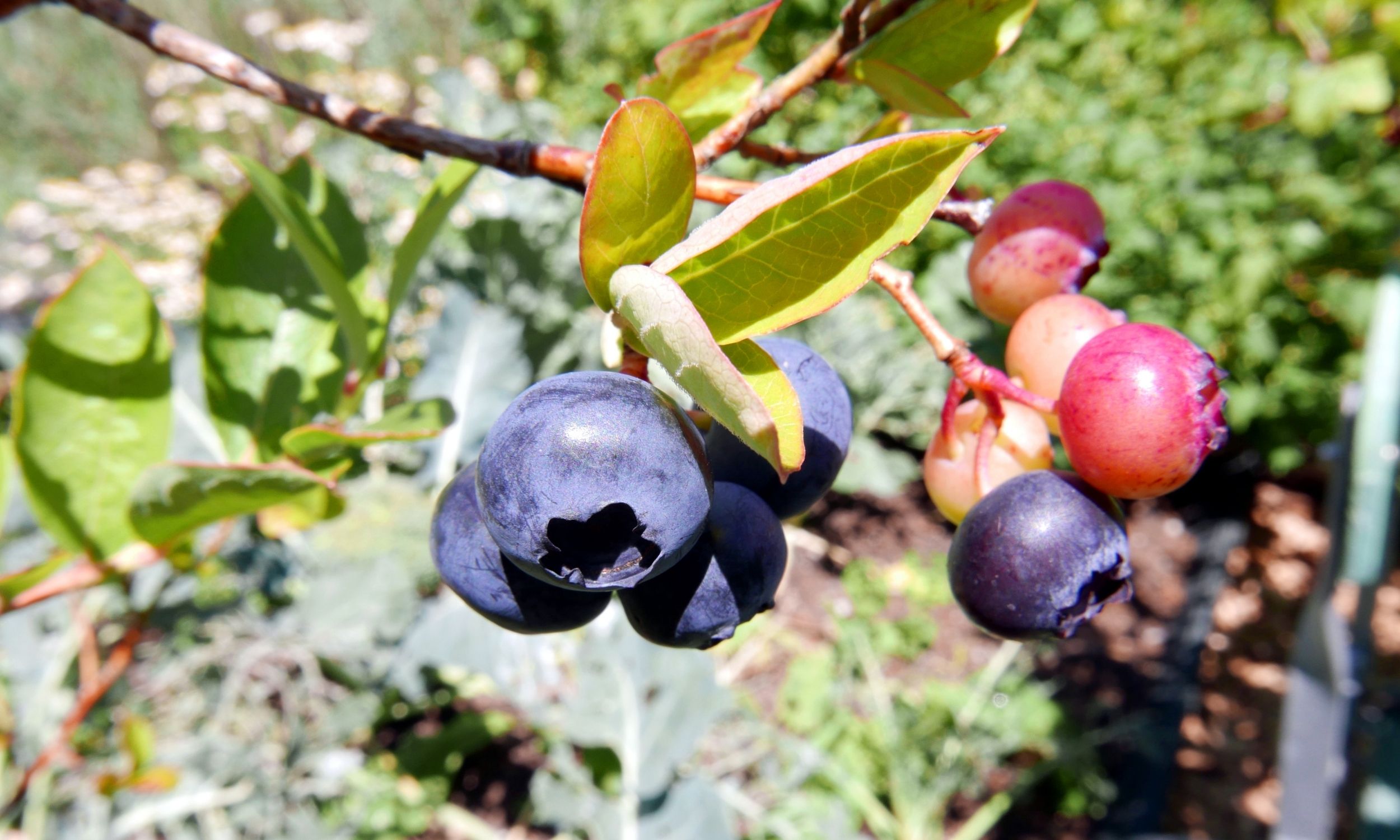
All in all, finding a good fertilizer for blueberries boils down to the soil in your backyard. The composition of your soil tells you how likely your blueberries are to flourish, so check it often. And within a few years, you will have amazing-looking berries.
Don’t have the room to plant blueberry bushes in the ground? You are in luck! you can grow blueberry bushes in pots. Learn More by Reading Planting Blueberries in Pots.
You may also enjoy these related articles:
- Planting a Permaculture Orchard
- Sourdough Blueberry Muffins
- Growing Blueberries In Containers for a BIGGER Harvest
Did you enjoy this article? Want to hear more? Stay in touch! Sign up below to receive weekly tips and inspiration for your homestead.
[convertkit form=3733554]
Pin for Later
